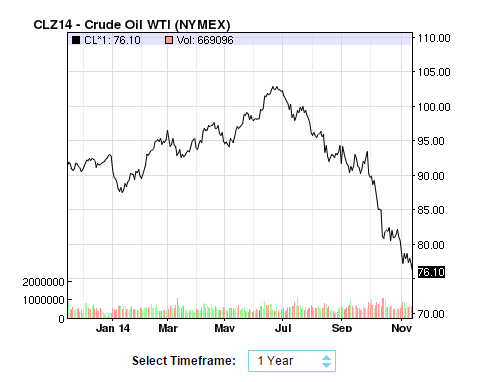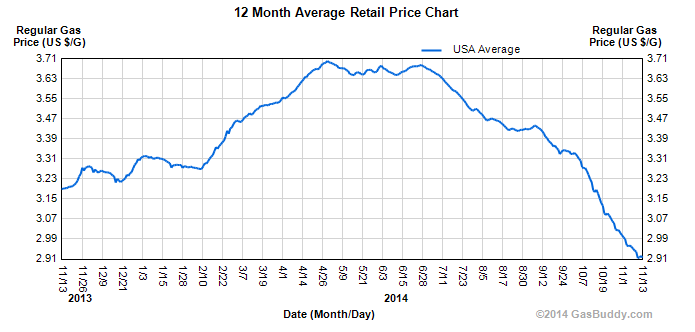REPRISE: How far would you commute each day for your dream job?
Note: The blog is taking some well-deserved rest for the next few days (that is code for I am pretty much out of decent ideas, and I doubt most folks are spending their holidays reading blogs anyway), and will be re-running some of best, or at least most interesting posts from 2014. Maybe you missed these the first time around or maybe you didn't really miss them, but either way they are presented for your consideration. Thanks to everyone who stopped by in 2014!
The below post first ran back in June and was a good example of a non-robot, non-technology, and non-sports type post that for some reason seemed to resonate a little bit. It hit on a normal issue for careers and workplaces - commuting, and the challenges that really long commutes to work can present. The example in the post is pretty extreme, but I think it helps us think about the kinds of 'life' tradeoffs we are willing to make for 'work'.
Happy New Year's Eve!
----------------------------------------------------------------------------------
How far would you commute each day for your dream job?
How far would you be willing to commute, (to keep it simple let's assume we are talking about commuting via driving your personal car), in order to work at your dream company/job?
I have to admit it is not a question I have personally thought about very much these last few years as my 'commute', if you could call it that, has typically been taking a short flight of stairs to my lower-level office/lair/Fortress of Solitude. But lots of folks, heck still the large majority I think, are making the pretty much daily grind to an office, store, warehouse or whatnot. Despite how much we like to talk about the nature and practice of work and workplaces changing, for most of us 'work' remains a place we physically go to just about every day.
So how far of a drive is too far?
I only thought about the question this week after reading a post on the LinkedIn blog titled, Inside Story: LinkedIn’s VP of Mobile on Driving in the Snow, Houzz and Anticipatory Computing. I clicked through to the piece because of the 'Anticipatory Computing' phrase, that just sounded really interesting and cool, but as it turns out the more interesting nugget from the post was about how this VP from LinkedIn (Joff Redfern) had a ridiculous commute his first four years with the company.
How ridiculous? Check this Q and A from the piece:
Q: What’s not on your LinkedIn Profile?
A: During my first four years at LinkedIn, I had one of the longest commutes. I lived in Lake Tahoe, California, but worked out of headquarters in Mountain View, California. It’s about 250 miles each way, so I put over 110,000 miles on my car. That’s the equivalent of driving around the world more than four times. It gave me lots of time to think and one of the benefits is that I’m pretty awesome at driving in the snow.
Did I read that correctly? 250 miles each way to get to the office? Even taking into account the fact that there was probably no way Mr. Redfern was making a 500 mile round trip every single work day, even still, just a couple of times a week that kind of a grind will be almost impossible to sustain.
How someone could manage a commute that crazy, and not go insane is kind of an interesting question I think, and you could substitute '500 mile commute' with, 'Has to work 18-hour days for a year in order to ship our first product'. I think there are at least three key elements you'd have to have in place in order to make it work:
1. The work itself has to be an ideal (for you) combination of challenge/excitement/opportunity/reward that will set you up perfectly for the next 10-15 years of your career such that you simply have to bite the bullet and devote yourself to that work for a year or two (or four).
2. You either have to have just about zero responsibilities outside of work (no spouse/significant other/kids/dog etc.) that might either literally starve (in the case of a dog) or be starved for attention (every other person in your life), since you are working all of the time. Or, you have someone in your life who has decided that they will take care of everything outside of work for you while you are working all of the time. I suspect it would be really tough for anyone to pull off a regular 500 mile commute if they had a spouse, a couple of kids maybe, at home that they actually wanted to see awake once in a while.
3. You have to be (reasonably) healthy before taking on such a grind. The combination of working crazy long hours and a long commute will start to break you down physically (and likely mentally too). You will eventually start eating poorly, not getting enough exercise, definitely not enough sleep and that combination starts to take a toll. If you are not set up to reasonably handle that kind of physical punishment you are more likely to end up in an ER somewhere than accepting a fat bonus check or a bunch of stock options for your hard work. Everyone can handle a long day or two or maybe five, but keep stacking them up, week after week and month after month? Good luck with that.
So how far are you willing to commute for your dream job?

 Steve
Steve

